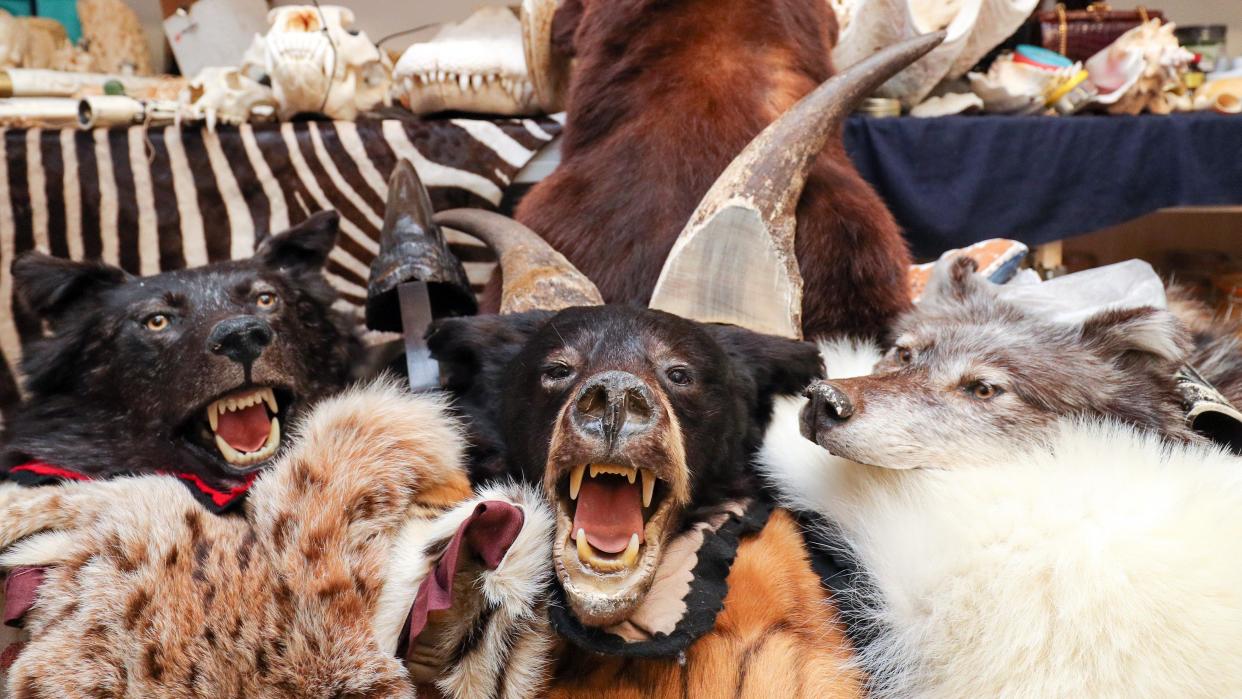Wildlife smugglers 'freer to offend' after police cuts

Criminal gangs will find it easier to smuggle endangered species and illegal wildlife products into the UK after a leading police unit was effectively axed, global conservation groups warn.
The Metropolitan Police’s wildlife crime unit – which has been at the forefront of the fight against illegal trafficking for the past 20 years – is being cut back, the BBC has learnt.
The decision to redeploy the unit’s detectives to local policing was described as “woefully wrong” by the animal welfare charity Naturewatch Foundation.
The Met told the BBC the force would still investigate wildlife crime and there would still be a centralised “function”, but would not comment on what that would be.

Although small, the unit - first set up in 2004 - has been at the forefront of UK operations against global wildlife crime, which is said to be worth up to £17bn a year and is the fourth-largest international crime, according to Interpol.
It often takes on cases following Border Force seizures of illegal wildlife products, such as ivory tusks, rhino horns, primate skulls and animal skins being smuggled through Heathrow airport.
Despite its successes over the years, the unit has struggled for resources and been part-funded by animal conservation charities.
Kate Salmon, wildlife crime campaign manager for Naturewatch Foundation, said the decision to redeploy the detectives was “woefully wrong”.

“The small unit’s work has an impact far greater than its size,” she told the BBC.
“This impact includes the disruption of organised criminality and ending the extensive suffering to both people and animals, which if lost will be shameful to the Met and wider UK policing.”
Dr Ruth Tingay, co-director of conservation campaign group Wild Justice, said the decision was “unfathomable”.
She said: “This unit has been central to the successful prosecution of a number of London-based individuals who have been involved in the illegal international trade in endangered species.
“Closing the unit will send a message to other wildlife criminals that they are free to offend without risk of consequence. It's shameful."
Border Force officers across the country will still work at entry points into the UK to deal with the smuggling of wildlife and wildlife products banned by the Convention on International Trade in Endangered Species of wild fauna and flora (CITES).
'Crucial frontline defence'
But, as well as investigating international wildlife crime, the Met unit also tackled wildlife crime across London itself and worked closely with local conservation and animal welfare organisations.
Matt Browne, director of policy and advocacy for coalition group Wildlife and Countryside Link, called for the decision to redeploy the officers to be reversed.
He said the unit was a “crucial frontline defence against wildlife crime”.
“At a time when people are asking authorities to protect nature, the capital will lose the specialist expertise that helps protect wildlife in the city,” he said.
A spokeswoman for the Metropolitan Police said the changes to the wildlife crime unit were being made as part of the New Met for London plan, designed to raise standards and lower crime rates across the force area.
The spokeswoman said the detectives from the unit would now focus on “tackling local crime problems”.
“This is in line with our focus on data-driven policing to help keep communities safe,” she explained.
“The Met will continue to investigate any allegations of crime involving wildlife.
"A function still exists within the central wildlife crime team, who are working closely with the national unit to support a number of borough wildlife crime officers across London.”


